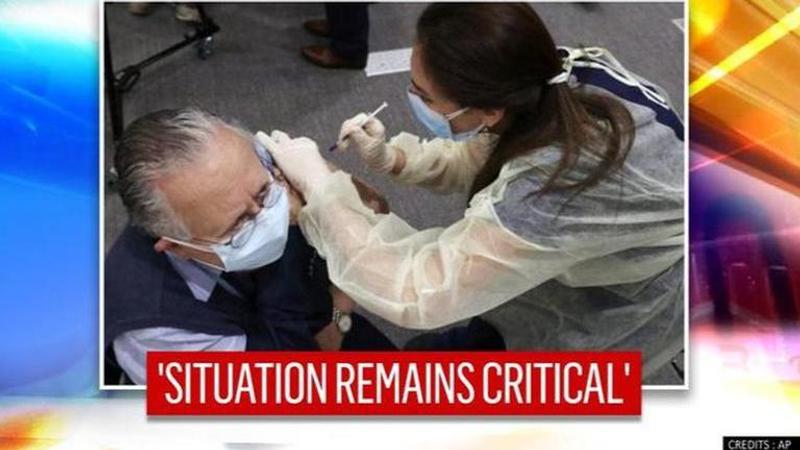Published 07:22 IST, February 16th 2021
WHO: 13 Mideast nations have all 3 coronavirus variants cases; situation ‘critical’
WHO said governments must ramp up the inoculation before more people came in contact with those infected with 'far more contagious' strains in the Middle East.

World Health Organization Eastern Mediterranean Regional Office on Monday revealed that while 6.3 million vaccinations have been administered across 12 nations in the Middle East, at least one of the three coronavirus mutants were reported in 13 countries in the region. The organization, however, disclosed that the SARS-CoV-2 cases were falling drastically in the region, but the situation was ‘critical’ due to the spread of the three new variants in Middle Eastern countries. Director-General of WHO’s eastern Mediterranean region, Ahmed Al-Mandhari, told a press briefing in Cairo that the UK, Brazil and South Africa’s more virulent variants were detected across the region, without disclosing specific countries, as he urged the people to continue to take health precautionary measures. He insisted that the governments must ramp up the inoculation before more people came in contact with those infected with 'far more contagious' strains.
“Vaccinations are a turning point in facing the virus but the vaccines alone are not enough,” Al-Mandhari said in a live-streamed address, emphasizing WHO-recommended techniques to mitigate the spread which includes social distancing, use of masks, and hand hygiene.
Al-Mandhari also sounded concerns about the surge in COVID-19 cases in some middle eastern nations such as Lebanon, which received its first batch of 28,500 COVID-19 vaccines last Saturday. The country has also been battered due to the onslaught of fresh cases as the healthcare system struggled to cope. Further, in his speech, the director of WHO's Eastern Mediterranean region informed that as many as 37,000 doses are set to be dispatched to the Palestinian region, and 94,000 in Tunisia as a part of WHO’s global COVAX alliance. Last month, WHO’s chief Tedros Adhanom Ghebreyesus, at a weekly briefing announced the procurement of 40 million doses of Pfizer vaccines for poorer countries.
WHO approves 2 more vaccines produced by India
Meanwhile, the WHO on Feb. 15 also authorized two separate versions of the AstraZeneca/Oxford COVID-19 vaccine for emergency use, which, it said in a press release, will be rolled out globally through COVAX. Approved following an inspection by WHO’s Emergency Use Listing (EUL) both vaccines are produced by AstraZeneca-SKBio and the world’s largest India Serum Institute based in Pune. “Countries with no access to vaccines to date will finally be able to start vaccinating their health workers and populations at risk, contributing to the COVAX Facility’s goal of equitable vaccine distribution,” said Dr. Mariângela Simão, WHO Assistant-Director General for Access to Medicines and Health Products. Meanwhile WHO announced the approval of two vaccines on Twitter mentioning India’s Serum Institute.
Updated 07:22 IST, February 16th 2021





